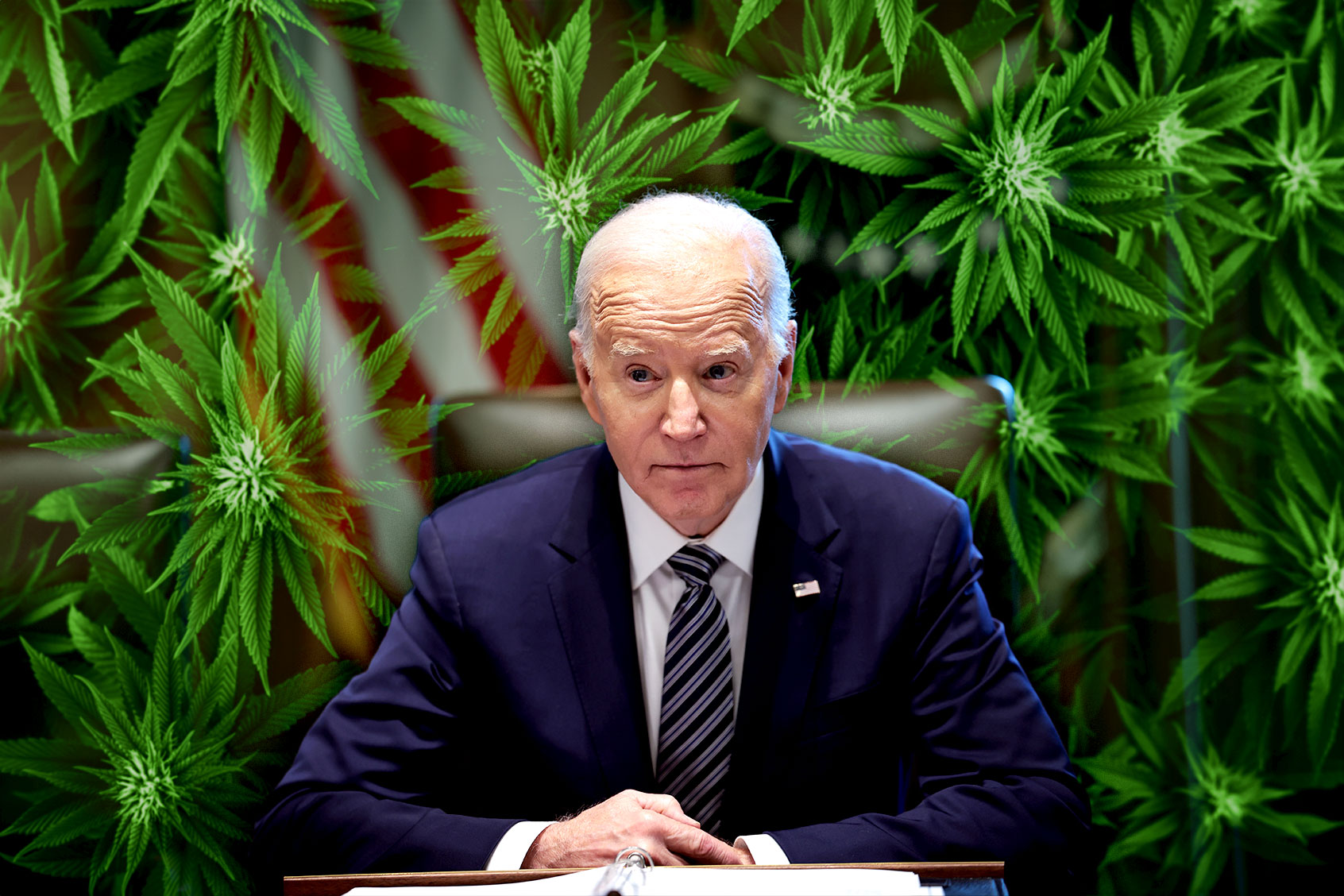During the 2020 presidential campaign, then-candidate Joe Biden repeatedly pledged to decriminalize marijuana and automatically expunge marijuana records – identifying these issues as barriers to racial equity.
As we lead into the 2024 election, President Biden still hasn’t fulfilled that promise. Instead, Biden is pushing watered down marijuana reform and nice-sounding rhetoric in hopes of reaching more voters, particularly Black, Latinx and young voters. 67% of young voters are dissatisfied with the candidates in the upcoming presidential election according to CNN, and nearly 1 in 5 Black voters who voted for Biden in 2020 say they are uncertain about him in 2024, according to a Washington Ipsos poll. These same voting blocs overwhelmingly support marijuana legalization.
But here’s the truth: rescheduling marijuana to Schedule III, as Biden’s DEA is proposing, would maintain federal criminalization. Currently, marijuana is a Schedule I drug in the Controlled Substances Act (CSA), the most restrictive category. A shift to Schedule III would symbolically acknowledge that marijuana has a relatively low risk for abuse and medical value. But in effect, the proposed change would keep federal penalties for marijuana in place and would benefit businesses rather than those harmed by marijuana criminalization.
Eliminating these glaring contradictions between our state and federal laws is not radical.
Rescheduling would provide tax benefits for marijuana companies, but people imprisoned for marijuana would not be released, have their criminal records erased or have access to federal benefits restored. Parents could still have their children taken away for marijuana violations. Immigrants could still be deported for marijuana use or working at a dispensary. Workers in marijuana industries would still lack critical federal protections. Research on state-regulated cannabis products would continue to face limitations under Schedule III.
While marijuana laws have shifted at the state level in a relatively short time, people across the country carry the collateral consequences of marijuana records — and the looming threat of federal criminalization — with them every day. Our current patchwork of marijuana laws leaves glaring holes through which tens of thousands of people fall each year – most of them poor, Black, Latinx or Indigenous.
Want more health and science stories in your inbox? Subscribe to Salon's weekly newsletter Lab Notes.
Your aging aunt might have a tin of THC-infused gummies on her bedside table to soothe her arthritis, but she could be charged with a federal felony for growing cannabis plants in her garden. The cafe downtown might offer CBD-infused cold brew, but a worker at that same cafe could be banned from receiving SNAP benefits to buy food because of a past marijuana conviction. Eliminating these glaring contradictions between our state and federal laws is not radical. Federal legislation to deschedule marijuana is necessary to bring our federal laws up to speed with state-based reforms.
Biden needs to fulfill his promise to voters to decriminalize marijuana. Decriminalizing marijuana at the federal level by descheduling it or removing it from the Controlled Substances Act (CSA), is necessary to end future federal criminal penalties. But to address past convictions and the other ramifications of prohibition, Congress must act.
Biden needs to fulfill his promise to voters to decriminalize marijuana.
Instead of misleading talking points and false promises of change, Biden should endorse the Cannabis Administration and Opportunity Act (CAOA), which was reintroduced in the Senate with eighteen cosponsors, including Senate Majority Leader Chuck Schumer.
The CAOA would not only federally decriminalize marijuana and automatically expunge federal marijuana records but would create a regulatory framework rooted in social equity that prioritizes public health, upholds states' rights, protects workplace safety, creates economic opportunities for small businesses and addresses the harms of the failed war on drugs. Biden can also take executive action in support of expanded pardons and commutations, protection of state marijuana programs, and directing federal agencies to stop punishing people for marijuana use.
We need your help to stay independent
It was Vice President Harris herself that said when it comes to marijuana reform, “this is no time for half-steppin’. This is no time for incrementalism.” For years, our friends and families have grown cynical from being promised transformative change and then being offered more of the same. It’s going to take more than half-steppin' to get our communities to the polls.
Biden has the power to urge his Administration and Congress to federally decriminalize marijuana, end punishments associated with marijuana criminalization, and begin the process of creating a federal regulatory framework that prioritizes public health and reinvests in people. Actions like this would show Black, Brown and young voters that he is someone who takes their concerns, their values and their votes seriously.

